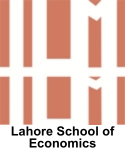QGIS Training Workshop
Trainers:
Zunia Saif Tirmazee and Dareen Latif
CREB organized its first 3-day virtual workshop on the use of QGIS software (an Open Source Geographic Information System) to train participants in dealing with spatial information on a computer. QGIS, a free and open source software package that allows managing and using digital geographical data enables users to visualize, manage, edit, analyse data, and compose printable maps that can be meaningfully used in research.
The workshop was conducted in three sessions each one week apart on the 1st, 8th and 15th of March, 2021. In all of the sessions some portion of the time was dedicated to participants working on QGIS to give them a hands-on experience with using the software.
The contents covered in each of the three sessions were as follows:
Session I: (March 1st, 3:00-4:30 pm)
This session was intended to be an introductory session to QGIS aimed specifically to familiarize participants with the interface of the software and cover basic topics like opening layers, using selections tools, projections, adding non-geometrical layers, creating choropleth maps, plotting points on a map, fetching coordinates from an online source and creating a delimited text layer etc. Participants also learned how to perform mathematical calculations using attribute tables and joining/merging different layers.
Session II: (March 8th, 3:00-4:30 pm)
The second session which built on the knowledge gained in the first session was meant to teach advanced techniques in handling digital geographical data. Here participants learned various techniques such as clipping, difference, intersection, union, convex hulls etc for extracting only relevant information from a map/layer. Additionally, participants also learned to compute distances between different features (points and polygons) on a map and finally to create buffers.
Session III: (March 15th, 3:00-4:30 pm)
In the third session participants learned how to extract and meaningfully use nightlight data that is now increasingly been used in the development literature to study a variety of research questions e.g urban dynamics, energy poverty etc.


